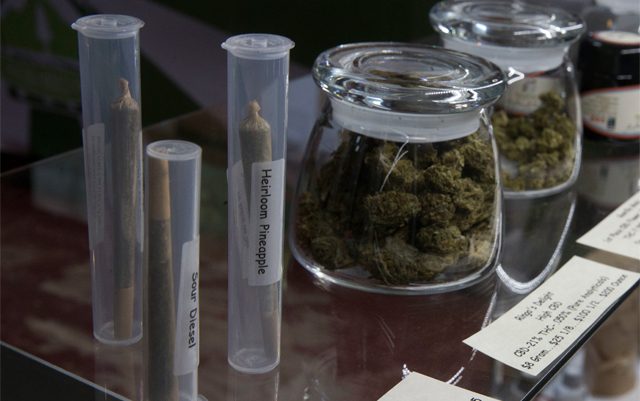For many New York cannabis businesses operating in the illicit or gray market, preparing to go mainstream is essential. Some have made the move and are ready to share their wisdom. For those who haven’t, preparing during the lead up to the state’s eventual adult-use legalization could prove critical to securing a place in the one-day legal market.
However, making the transition has its series of difficulties.
New York State currently allows a select few options for cannabis business licenses. Ancillary businesses that don’t directly touch the plant are popular due to their ability to replicate virtually any other market without risk of violating the law. As such, these ventures often require little to no additional licensing, acting as any other legal business would.
Companies like head shops and manufacturers are also seeing opportunity to a lesser degree. When it comes to the plant itself, though, the closest most companies can currently come to touching it is CBD. Under regulations, CBD cultivators and retailers can sell products, provided that they contain less than .3% THC.
The only businesses allowed to touch THC-rich plants are the few vertically-integrated license holders granted by the state. New York officials began its program granting five licenses to companies, giving them the opportunity to open four dispensaries and one manufacturing location across New York.
As program interest grew, parts of the state further suffered from lack of access to a dispensary. The state granted five additional licenses under the same four-dispensary, one manufacturing location arrangement to meet the demand.
A limit on licenses is just one hurdle. The history of high entry costs have been a constant concern as well.
Estimates suggest that the price of entry for vertically-integrated licenses were between $15 and $30 million, according to various sources. The high price point to enter the space, if it were to open again any time, includes various fees and start-up costs. According to the state Department of Health, fees include a non-refundable $10,000 application, a $200,000 refundable payment to the state and the ability to prove a company can open the five mentioned locations.
With limited access and a significant financial hurdle to clear, many deemed the venture impossible. Under adult-use legalization, however, access could expand greatly.
Governor Andrew Cuomo’s so far failed adult-use legalization bill came at the expense of many promising outcomes. Criminal justice reform took the spotlight, and deservedly so. The shortcoming to pass the bill and overhaul a broken justice system, which includes scores of non-violent cannabis offenders, sparked the state to pass decriminalization measures as a momentary plan B for New Yorkers.
If passed, the Governor’s Marihuana Regulation and Taxation Act would further address criminal justice efforts in the state, emphasizing penal justice and criminal procedure reform.
Under the bill, entrepreneurs would also see expanded opportunities. The proposed Cuomo bill calls for licenses allowing cultivation, processing, distribution and sales of cannabis to people 21 or older. Licenses would expand to resemble those of other legalized adult-use markets.
A plethora of business opportunities eventually will exist for companies, such as cannabis transportation, co-operatives, processing and just about every other venture imaginable. One area not likely to have been included in the bill was social consumption, an ongoing topic of discussion in cannabis as of late.
Some entrepreneurs have already been able to pivot their illicit efforts into the mainstream. Often, this includes growers and cultivators. Adrian Edwards is the founder of Life Gardening Tools, a CBD venture that also focuses on urban gardening and bee advocacy. The company supports ethical beekeeping in Brooklyn, Staten Island and New Jersey in addition to selling an array of products from CBD oil, edibles, accessories and pre-rolled options it calls Hempette’s.
The now legal CBD grower, extractor and retailer has over a decade of experience in the grey/white market. Most of his time has been in the illicit market, despite always seeking to enter the legal side of the market.
Edwards, a black man, said he spent much of his time in the illicit market, often referred to as the black market, positing the inherent inequality of the growing legal, or white, market. To date, the industry continues to be largely caucasian-owned after decades of disproportionate policing during the drug war. Such policing continues to be an issue across the country.
In the summer of 2018, Edwards saw a white-owned hemp store in the city. The revelation inspired him to go legal himself. “I realized if I didn’t get in now, then there was going to nothing but white-owned hemp and THC dispensaries while black people are still arrested and affected by the selective war on drugs,” Edwards explained.
When he wanted to make the transition, he did so with insights from leaders in the community, like Rep. Tremaine Wright, the representative for New York State Assembly District 56, representing the Bedford-Stuyvesant district of Brooklyn.
Edwards attended a cannabis 101 event Rep. Wright hosted, which educated the community about CBD and its products. Rep. Wright passed on worthwhile advice to Edwards. “She told me to focus on advocacy and education in order to empower the folks who have been barred from benefiting from the cannabis industry,” said Edwards.
He added, “Local politicians are doing their best to protect and heal their communities from the war on drugs.”
Edwards also credits Gia Morón, Executive Vice President of Women Grow, for teaching him “the importance of long-term thinking, patience, education and being an advocate.” He said Women Grow welcomed him with open arms, allowing him to be a representative for the black male community in the space.
Going legal led Edwards to spend his time growing numerous revenue streams, including exclusive events and in-store sales. He also had to step out of his community to advance his network and funding.
“When I first started, people in the African American community really didn’t know or care about hemp CBD. So, initially, I had to go to areas with the people who knew about CBD and had the money to pay for it.” He credits efforts like Rep. Wright’s for bridging this gap.
A year later, Edwards is fully mainstream and licensed. He considers the money, time and effort all worth it. He continues to network and market Life Gardening Tools today, and believes he has a business that can easily translate to an adult-use market if and when New York should legalize.
He recommends others in the illicit market do the same.
Transitioning from an illicit venture to a fully licensed one varies for businesses. Avis Bulbulyan is CEO of SIVA, a nationally cannabis consulting firm. Bulbulyan has over 12 years of experience in various cannabis sectors, including the Los Angeles’ Cannabis Task Force . He explained how market, sector, available resources and their commitment to the bigger picture all play a part. He noted a company should expect downtime during the transition. The cease in operation causes a loss in revenue. The downtime can last anywhere from a month to a year.
“Most illicit operators can’t survive this part of the transition because of a lack of planning, short-sightedness in giving up immediate untaxed revenues for long-term growth and success,” he noted.
He noted that New York’s current market is even more difficult due to the restriction on available licenses. “If you’re an operator in New York planning to stay in the industry, your best bet is to probably relocate to a different state.”
Bulbulyan agreed the financial hurdle is an issue, but is not the only one causing problems for possible entrepreneurs. He elaborated on what he considers a larger issue under current regulations, licensing.
“What makes the state difficult is the nature of the licensing process, and the approach regulators take. New York has an extremely restrictive program with limited licenses issued. Being the best grower in the state would have nothing to do with securing a license.”
With scores of hurdles affecting New York and other illicit American cannabis ventures, it is unknown how many will successfully transition as the new cannabis normal sets in across the country. Hopefully, their hard work and sweat equity won’t be lost in the change.






